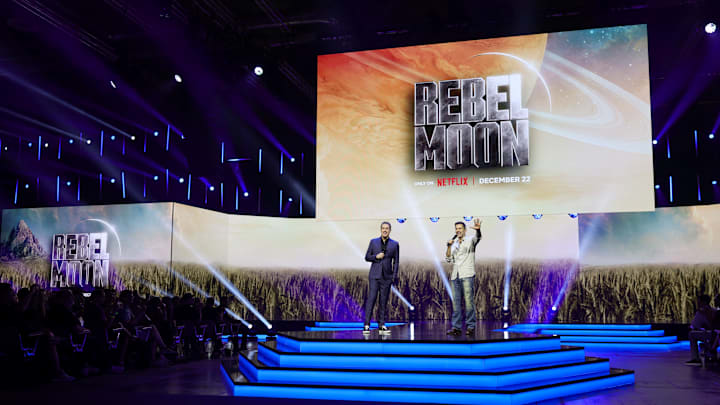Geoff Keighley, known as the face of the video game industry through events like The Game Awards, recently made a notable move: acknowledging the wave of layoffs hitting the industry. However, the timing and nature of these tweets have raised eyebrows and questions about their sincerity.
For months, Keighley remained silent about the historic number of layoffs plaguing game developers, which have already surpassed 8,000 this year alone. It wasn't until recently, on March 12, that he finally tweeted about these job losses. Yet, the context of his tweets raises suspicions about the true motives behind this sudden acknowledgement.
In the aftermath of Keighley's tweets, the timing seemed awfully convenient. Just hours after addressing the layoffs, he swiftly pivoted to promoting his upcoming event, Summer Games Fest 2024, sharing dates and times for the showcase. This quick transition left many wondering if his initial tweets were merely a calculated move to preemptively address the issue before focusing on hyping up new game announcements.
Critics argue that Keighley's tweets about layoffs were tepid at best. They did not directly confront the root causes of these job losses, such as corporate greed or unsustainable practices within the industry. Instead, Keighley vaguely referred to a "heartbreaking time" for developers and shared a link to a website offering job resources—a move that some perceive as a way to maintain positive relationships with game publishers rather than advocate for meaningful change.
The pattern is concerning for those in the gaming community who are all too familiar with the cycle of overworked, underpaid developers facing constant uncertainty due to layoffs. Keighley's ability to swiftly transition from acknowledging these hardships to promoting new games raises questions about his commitment to addressing industry challenges head-on.
While some initially hoped Keighley's tweets signaled a shift towards more substantial advocacy, the subsequent promotion of Summer Games Fest suggests otherwise. It appears that Keighley's tweets about layoffs may have been more about optics and avoiding backlash rather than genuine concern for the well-being of game developers.
As the gaming industry continues to grapple with these systemic issues, Keighley's actions serve as a reminder of the complexities and challenges faced by those within the industry. Whether this momentary acknowledgment leads to lasting change remains to be seen, but for now, skepticism lingers regarding Keighley's role as a spokesperson for the video game industry.
Keighley's tweets have highlighted a broader issue within the gaming industry: the need for more transparent communication and genuine efforts to address the well-being of developers. The gaming community is looking for leaders who not only celebrate the industry's successes but also acknowledge and actively work to solve its problems. Keighley's role in this conversation may now be under increased scrutiny, as gamers and industry professionals alike seek meaningful change.
The gaming industry has long grappled with issues of crunch culture, job instability, and burnout among developers. Layoffs, particularly in the wake of successful game releases, have become an unfortunate trend. These layoffs often affect talented individuals who have poured their hearts and souls into creating the very games that drive the industry's success.
Keighley's tweets, while a step in the right direction, have left many wanting more. There is a growing demand for industry leaders to not only acknowledge these problems but to actively work towards solutions. This includes advocating for fair labor practices, supporting initiatives that promote developer well-being, and holding companies accountable for their treatment of employees.
The timing of Keighley's tweets, just before the announcement of Summer Games Fest 2024, raises questions about whether they were a genuine expression of concern or a strategic move to mitigate potential backlash. For those affected by the layoffs, these tweets may have felt hollow, lacking the substance needed to address the gravity of the situation.
In an industry where success is often measured by the excitement generated by new game announcements and flashy trailers, it's easy to overlook the human cost behind the scenes. Developers are not expendable resources; they are the lifeblood of the industry. Their well-being and job security should be a top priority for industry leaders like Keighley.
As the gaming community continues to evolve and demand accountability, it is essential for figures like Keighley to listen to these voices and take meaningful action. Merely acknowledging layoffs is not enough; tangible steps towards improving working conditions, promoting job stability, and fostering a culture of respect and support are needed.
Keighley's tweets serve as a reminder of the ongoing challenges faced by those working in the video game industry. While they may have sparked a conversation, the true test lies in what actions follow. The gaming community is watching, waiting to see if Keighley and others will rise to the occasion and advocate for real change.
